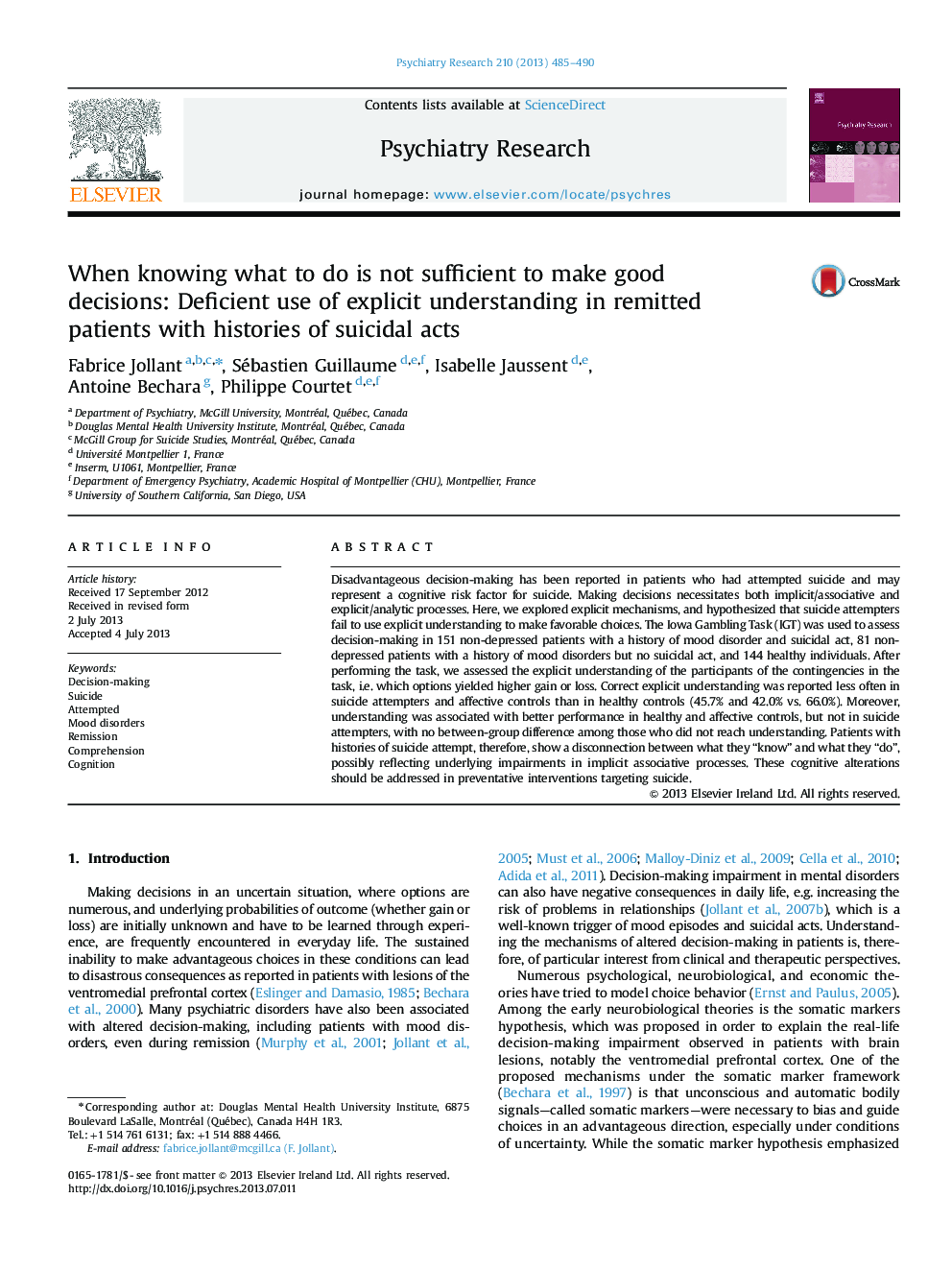| Article ID | Journal | Published Year | Pages | File Type |
|---|---|---|---|---|
| 333157 | Psychiatry Research | 2013 | 6 Pages |
Disadvantageous decision-making has been reported in patients who had attempted suicide and may represent a cognitive risk factor for suicide. Making decisions necessitates both implicit/associative and explicit/analytic processes. Here, we explored explicit mechanisms, and hypothesized that suicide attempters fail to use explicit understanding to make favorable choices. The Iowa Gambling Task (IGT) was used to assess decision-making in 151 non-depressed patients with a history of mood disorder and suicidal act, 81 non-depressed patients with a history of mood disorders but no suicidal act, and 144 healthy individuals. After performing the task, we assessed the explicit understanding of the participants of the contingencies in the task, i.e. which options yielded higher gain or loss. Correct explicit understanding was reported less often in suicide attempters and affective controls than in healthy controls (45.7% and 42.0% vs. 66.0%). Moreover, understanding was associated with better performance in healthy and affective controls, but not in suicide attempters, with no between-group difference among those who did not reach understanding. Patients with histories of suicide attempt, therefore, show a disconnection between what they “know” and what they “do”, possibly reflecting underlying impairments in implicit associative processes. These cognitive alterations should be addressed in preventative interventions targeting suicide.
